Back to: GEOGRAPHY SS2
Welcome to class!
In today’s class, we will be talking about transportation in Nigeria. Enjoy the class!
Transportation in Nigeria
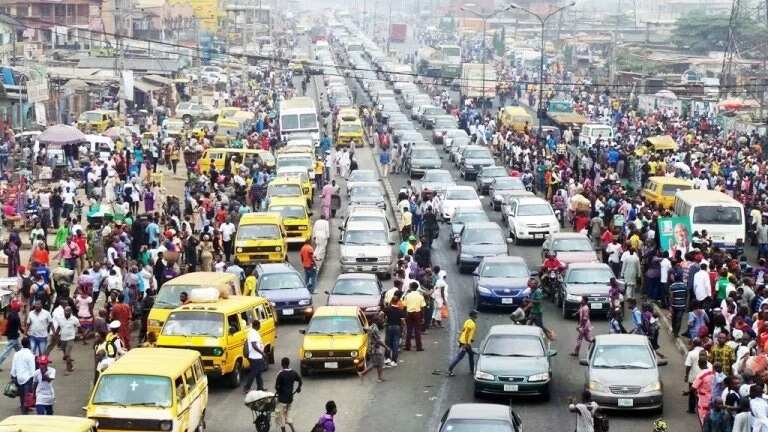
Transportation is defined as the movement of people, goods and commodities from one place to another either by land, water or by air.
TYPES OF TRANSPORTATION
Land Transport:
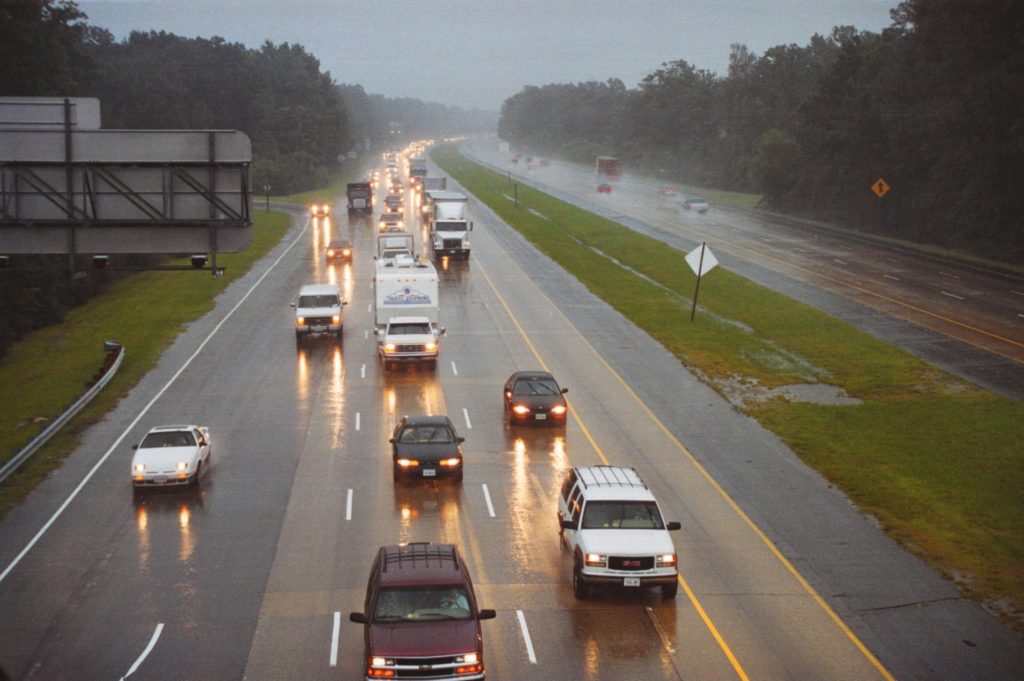
This is the movement of people and goods from one place to another by land. Means of transportation by land include:
- Human portage: This involves the use of human legs for movement i.e. trekking. This is basically applicable where the distance is not much.
- Animal portage: This involves the use of certain animals like horse, donkey, camel, etc. for movement. This is very common in the northern part of Nigeria.
- Road transport: This involves the use of motor cars, buses, motorcycles, Lorries and trucks for movement.
- Rail transport
In Nigeria, there are 3 types of roads:
- Trunk A Road: These are roads constructed and maintained by the federal government. They are dual carriage or express roads linking federal and State capitals. E.g. Lagos – Ibadan, Warri – Benin, Onitsha – Enugu, Kaduna – Zaria express road.
- Trunk B Roads: Are roads constructed and maintained by the state government. They link different areas within a state. E.g. Ikeja – Ojota, Ogba – Oshodi, Mile 2 – Badagry, etc.
- Trunk C (local) roads: Are roads constructed and maintained by the local government. In most cases, these roads are not tarred in Nigeria.
Advantages of Road Transportation
- It is the most common means of transportation.
- It provides door- to- door services.
- It makes goods available where they are scarce.
- It feeds water, rail and air transportation.
Disadvantages of Road Transportation
- Roads are very expensive to construct and maintain.
- The road is difficult to construct especially in the rainy season.
- Amount of goods and passengers carried by road is limited.
- Roads are more prone to accident than any other means of transportation
- They require adequate maintenance daily.
Limitations of Road Transportation
- Presence of high lands and other rugged relief.
- Presence of swampy areas.
- Soil erosion caused by heavy rain.
- Lack of finance to construct and maintain the roads.
Solutions
- Roads should be constructed on lowlands, passes or gaps around mountain areas.
- Construction of flyovers in marshy areas.
- Construction of bridges across rivers.
- Funds should be provided for road maintenance.
Rail Transport:
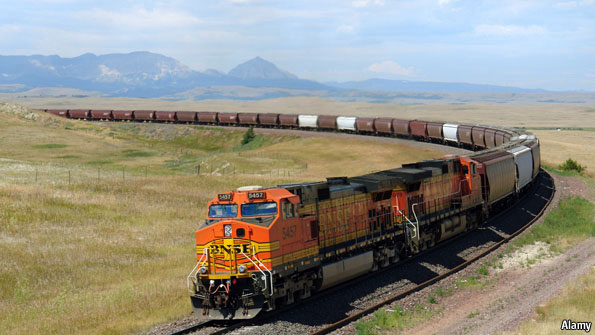
This is transportation by rail i.e. the use of Trains. Nigeria uses mostly narrow-gauge railway lines.
Advantages of Rail Transport
- It is the most convenient means of transporting bulky goods.
- It is cheap.
- It can move people and goods over a very long distance.
- It helps to open up new lands.
Disadvantages of Rail Transport
- It involves a high cost of construction and maintenance.
- It is very slow (the slowest), and therefore not suitable for transporting perishable goods.
- Constant stopping in each station and changing of passengers waste a lot of time.
- It depends on roads to feed it with passengers.
Limitations of Rail Transport
- Rail transport is too slow.
- It has very low patronage and high competition with other forms of transport.
- Lack of spare parts, narrow-gauge with single tracks.
- Inadequate funding.
- Lack of technical know-how.
Solutions
- Modern rail system with wide gauges and multiple tracks should be developed.
- People should be trained in rail maintenance.
- Rail transport should be properly funded.
- Spare parts should be made available.
- Railway fare should be cheap to attract passengers
Air Transport:
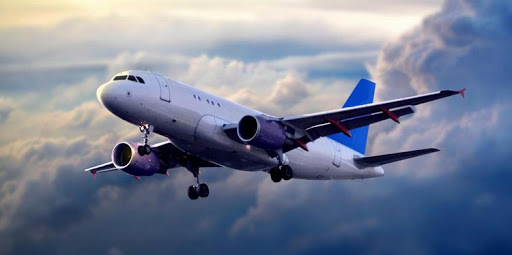
This is the movement of people, goods and services from one place to another by air. It involves the use of aeroplanes, helicopters, jets and rockets. There are two types of airports:
- International Airport and
- Local / Domestic Airport.
International Airports are airports where planes that fly outside the country can take off or land e.g. Muritala Mohammed International Airport (Lagos), Abuja International Airport (Abuja), Port Harcourt International Airport (PH).
Domestic (Local) Airports on the other hand are airports where planes that fly within the country i.e. from one state to another can take-off or land.
Advantages of Air Transport
- It is the fastest means of transport.
- It uses a direct route.
- It can reach anywhere provided there are landing facilities.
- Aeroplanes can cross mountain, dense forest and large ocean with ease and great speed
- Urgently required Medicare supplies, machine parts, express mails, etc are easily dispatched by aeroplanes.
Disadvantages of Air Transport
- It is expensive to operate and maintain, especially the aircraft and airport facilities.
- It is very expensive (the most expensive).
- It is easily affected by bad weather, which makes visibility very poor.
- There is a problem of safety as the incidence of plane crashing and hijacking is becoming very common.
Limitations of Air Transport
- There is limited capital to construct an airport
- There is problem of inadequate spare parts.
- Weather hazards.
- There is problem of low patronage due to its expensive nature.
- There is also the problem of poor management and inadequate security.
Solutions
- Loans should be sourced for the proper maintenance of airports and aeroplanes.
- Spare parts should be procured.
- Efficient management should be adapted.
Water Transport:
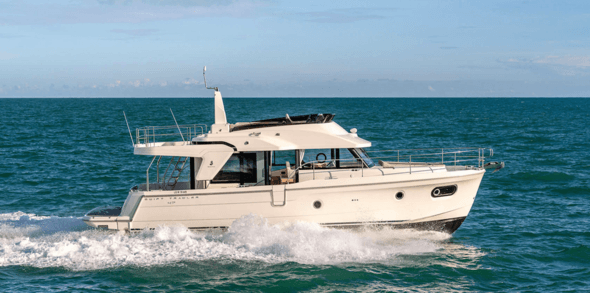
This is the movement of people, goods and services by water. Water transport is divided into 2 parts
- Ocean navigation and
- Inland water navigation.
Ocean navigation involves transportation by water between Nigeria other countries using the Oceans, especially along the coastline, while inland water navigation involves navigation along the creeks, lakes, lagoons and rivers in Nigeria.
Advantages of Water Transport
- It is the cheapest means of transport between countries.
- The ocean is free for all Nation to use.
- It is used to move bulky goods from one country to another during international trade.
- Cost of construction and maintenance is low and only restricted to ships and ports.
- It is good for transporting goods over a long distance.
- It is relatively safe.
Disadvantages of Water Transport
- It is the slowest means of transportation when compared to Air and Land transport.
- Cost of acquiring a ship is very high.
- Cost of ship parts, construction and maintenance is high.
- Lack of technical know-how
Limitations of water transportation
- Presence of waterfalls, rapids and cataracts limit the use of rivers.
- Presence of floating vegetation.
- It is only useful in countries with coastlines and ports as against landlocked countries with no oceans or seas.
- Seasonality of most rivers is a problem.
- The shallowness of most rivers is also a problem.
- There is also a problem of sea sickness.
- Limited capital to construct seaports.
Solutions
- Rivers should be dredged regularly.
- Loans should be granted to construct and maintain seaports.
- Medical facilities onboard should be improved.
- Construction of canals to bypass waterfall and cataracts.
CONTRIBUTION OF TRANSPORTATION TO THE ECONOMIC DEVELOPMENT OF NIGERIA
- Movement of goods and services.
- Movement of people.
- Specific purposes e.g. Air transport can be used for the survey.
- National and International trade.
- Opening up of new land or areas.
- National integration.
- Development of tourism.
- Employment.
- Generation of revenue.
PROBLEMS OF TRANSPORTATION
Physical factor
- Presence of highlands
- Distance i.e. long distance
- Presence of marshy areas
- Presence of many rivers
- Soil erosion
- Poor visibility
Human factors
- Lack of capital
- Lack of technical know-how
- Low patronage
- Bad roads
General Evaluation
- What is transportation?
- State the mode of transportation.
- Which transport mode is considered the cheapest?
- State the advantages of land transport.
- What are the problems facing transportation in Nigeria?
In our next class, we will be talking about Manufacturing Industries in Nigeria. We hope you enjoyed the class.
Should you have any further question, feel free to ask in the comment section below and trust us to respond as soon as possible.

The definition of port development
I want to copy the note please
Glad you found it helpful😊 For even more class notes, engaging videos, and homework assistance, just download our Mobile App at https://play.google.com/store/apps/details?id=com.afrilearn. It’s packed with resources to help you succeed🌟
can’t copy the note?
Glad you found it helpful😊 For even more class notes, engaging videos, and homework assistance, just download our Mobile App at https://play.google.com/store/apps/details?id=com.afrilearn. It’s packed with resources to help you succeed🌟